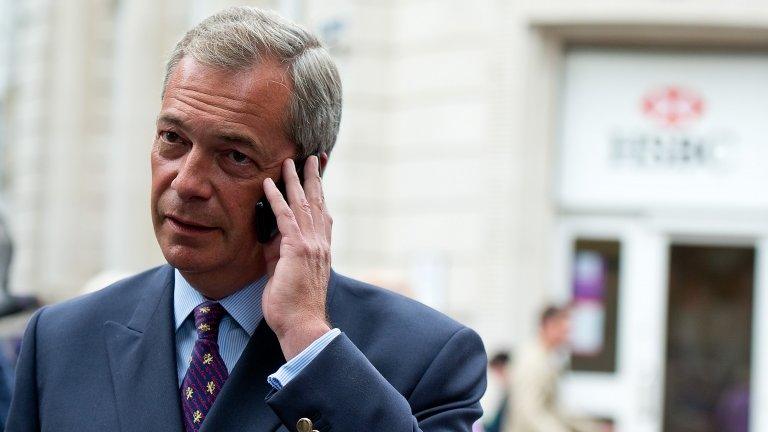UKIP: Is the party coming to an end?
- Published
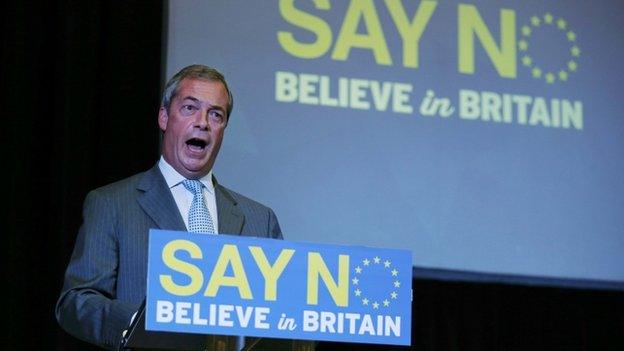
The last time I was here - at the party conference in Doncaster - I was surrounded by jubilant UKIP supporters. Some were waving flags and whooping their leader Nigel Farage out of the auditorium. Others were taking photos of each other on stage. All because of the man who'd just been snuck into Doncaster racecourse in a blacked-out car.
The then Tory MP Mark Reckless defected to UKIP at the end of its conference a year ago. At the time I reported that it felt like being among the fans of the winning team at an FA Cup final. It seemed the 'tremors' ahead of the much promised "earthquake" were shaking the ground in Yorkshire.
But it turned out that was the high. On the day of the general election, Mark Reckless was rejected by the people of Rochester, Nigel Farage failed for the seventh time to become an MP and all that talk of the "people's army" taking over in Boston, Grimsby and Thurrock came to nothing.
UKIP was left with a single representative in parliament. The leader resigned and then "un-resigned". A brief period of civil war ensued.
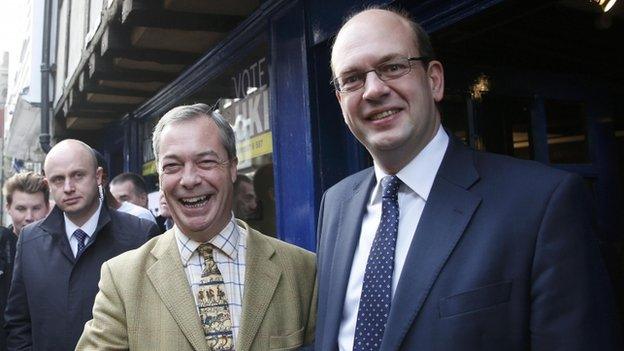
Nigel Farage with former UKIP MP Mark Reckless, who lost his seat in May
There was, though, much for the party to be positive about.
It picked up almost four million votes and a slew of portentous second places in dozens of seats across Labour's heartland in the north of England. Most of all the Tory win ensured that the UK will get a referendum on membership of the European Union - the event that UKIP has been fighting for since its inception.
But UKIP has big decisions to make and big problems to face.
Is it a broad political party?
UKIP has considerable pockets of support across the country but there was no break-out at the last election.
Does that remain its ambition, to broaden its base in line with party chairman Steve Crowther's 2020 strategy and get more MPs? The next test is elections across the nations next year and the London mayoral race.
Nigel Farage tells Newsnight on the migration crisis: "We're opening our doors to jihadism"
Senior UKIP figures point to Wales, where they've high hopes of making inroads into the assembly. That's a boost they need.
Or is UKIP a one-issue movement?
The reality now is that it's all hands on deck for the EU referendum. Nigel Farage has always denied he leads a one-issue party yet that is what it will look like from now on.
He's made no secret - in fact it's been a major selling point - that he believes only UKIP can provide the backbone for an effective "leave" campaign. As this conference beckoned, he told me they are "raring to go" with their "raison d'etre ahead".
What about Nigel Farage?
He is probably the most prominent - and arguably the most effective - proponent of leaving the EU. His national tour is under way, across the UK, with numerous public meetings planned to spread the word. But he knows that neither of the established "no" campaigns want him to lead their efforts, or the unified campaign that most expect to emerge next year.
He also knows that there are prominent members of his party, people he trusted to run the general election campaign he is so proud of, that agree with that assessment. For now though he doesn't care. There's a vacuum - he's filling it. But could he, should he, take a step back?
Does UKIP have a shelf life?
'The party's nearly over'
A prominent UKIP donor told me, privately, last month that the party will be over in a few years' time.
And this person wasn't talking metaphorically. This individual, who has given considerable sums of money to the party, and placed much stock in Nigel Farage, believes its work is done.
Irrespective of whether it's "leave" or "remain" by 2017, they think UKIP is "dead". The party leader doesn't see it like that, but there's no escaping the fact that his talk of the approaching "raison d'etre" does have an air of finality about it.
I'm expecting a reflective but emboldened Nigel Farage in Doncaster this year. He's told me he'll use his main speech on Friday to reflect on some aspects of the general election campaign and on "one or two things" that people said afterwards.
He'll bash the SNP, again. Expect him to renew his attacks on an electoral system that gave the party 12.6% of the national vote but just one MP. UKIP members are very angry about that.
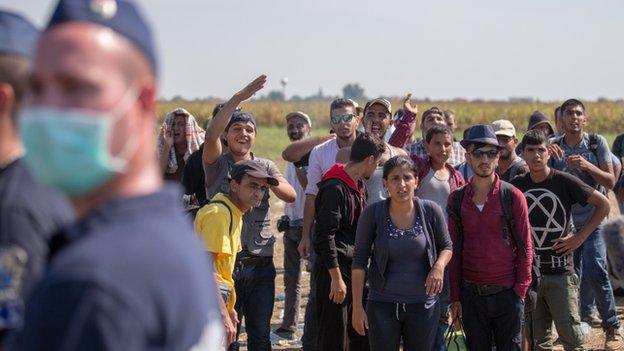
Nigel Farage says he's been proved right on migration into the EU
But there won't be a reset. He doesn't think one is needed. In fact he was emboldened by much of the campaign and in particular what's followed.
The UKIP leader believes events on the beaches of Greece and the border of Hungary have vindicated his predictions of 'biblical' migration to an EU which can't control who comes in.
He also believes his claim that so-called Islamic State would use the mass movement as cover for exporting terrorists to Europe is something that mainstream politicians are now repeating. He thinks it's been proven that his party was utterly right on migration.
Most of all he - and the vast majority of the audience I suspect - will be relieved and very glad that it is him, once again, at the rostrum giving the leader's speech. But there will be some in the room, and more beyond, who increasingly worry that Nigel Farage as the prominent face of the campaign to leave the EU could be holding UKIP back from achieving its ultimate aim.
And it's not a good sign when one of your most prominent supporters, and donors, believes the high point has passed and the party could, quite literally, be over in a few years' time.
- Published25 September 2015
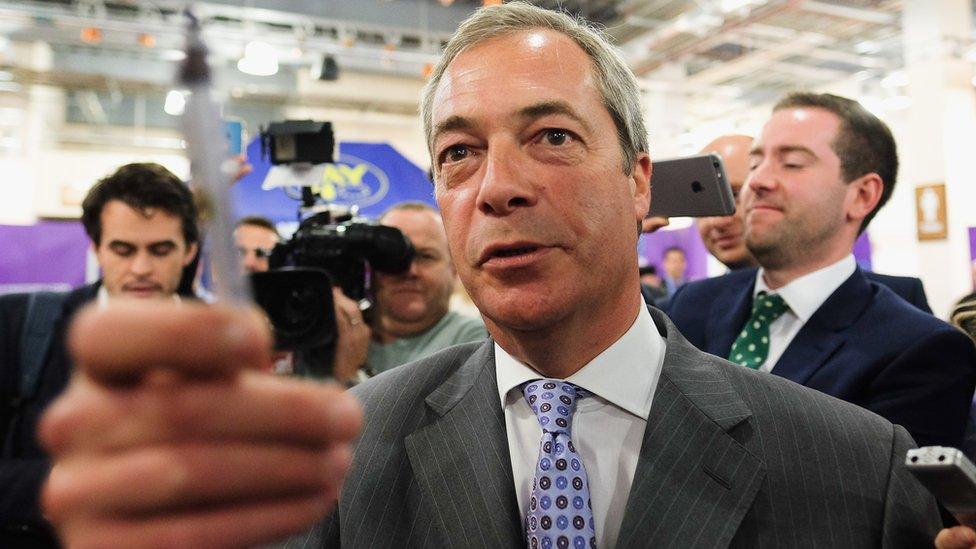
- Published25 September 2015
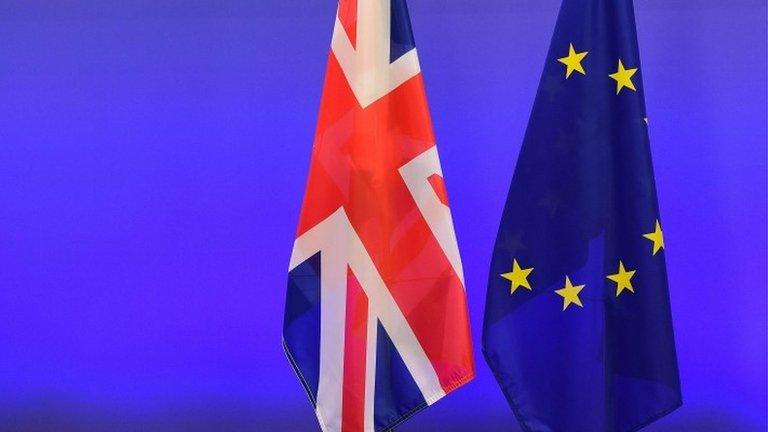
- Published25 September 2015
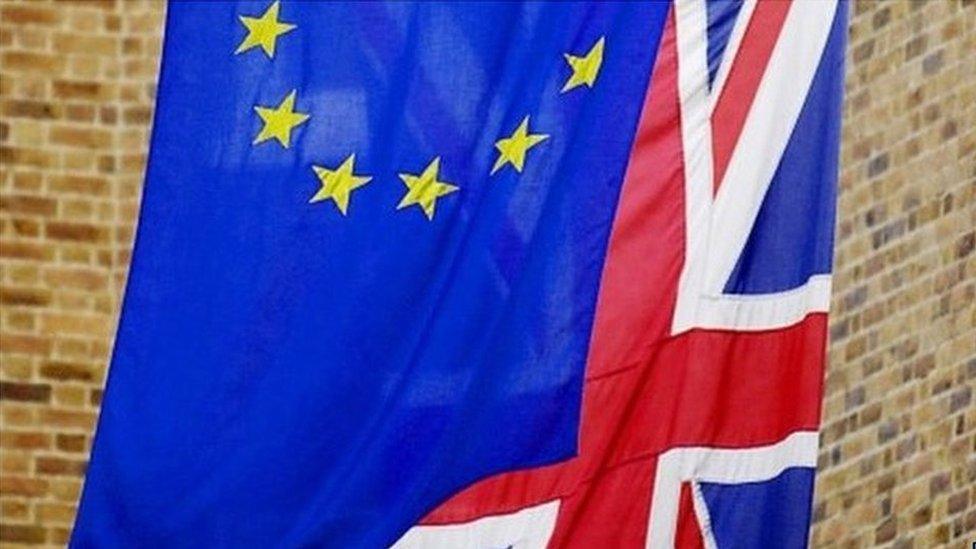
- Published24 September 2015
